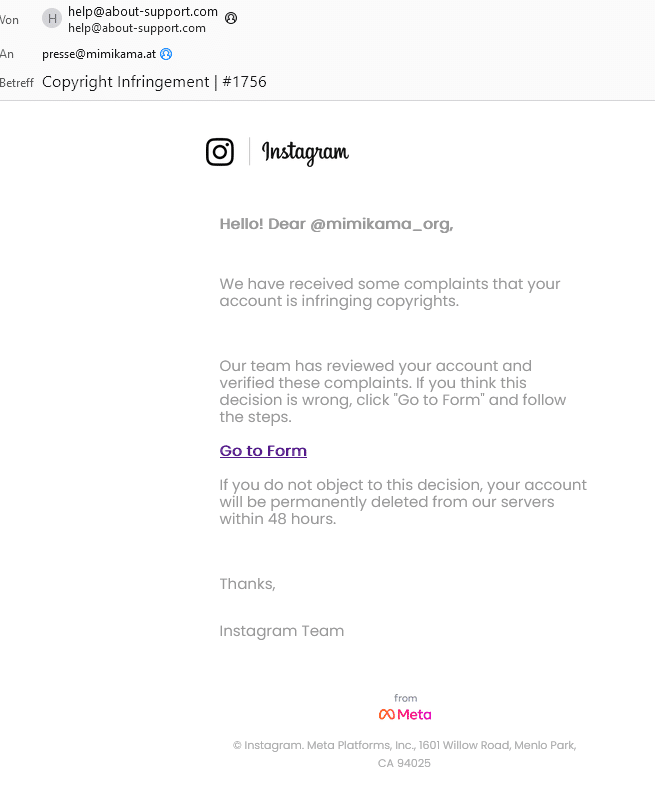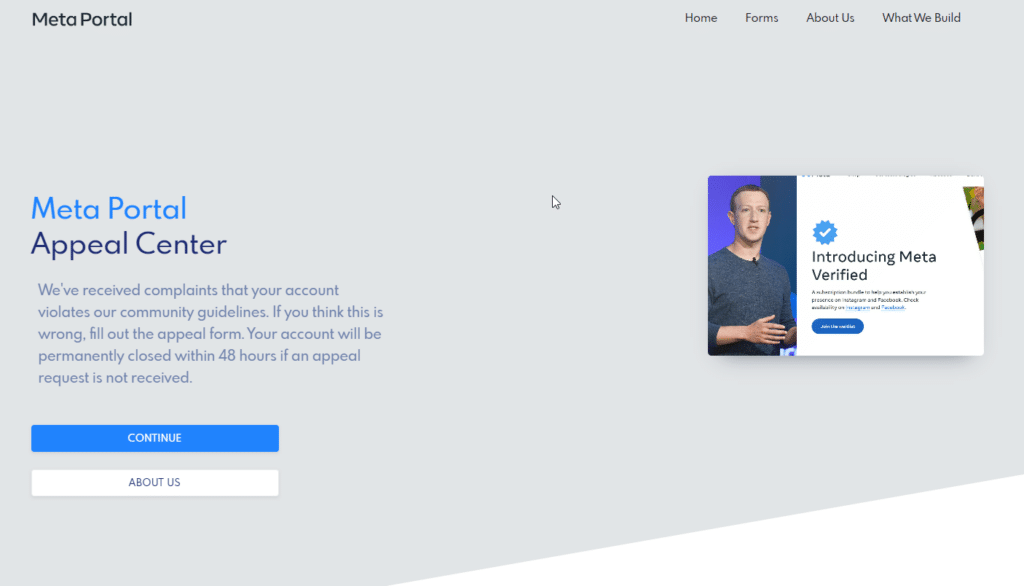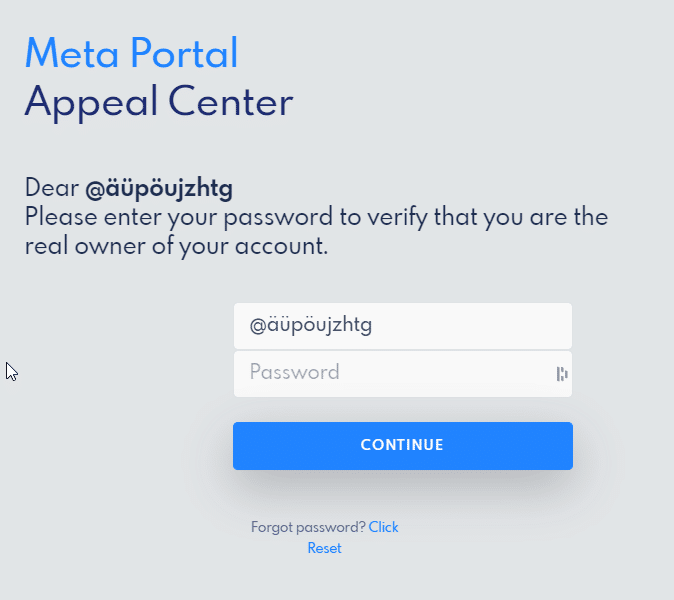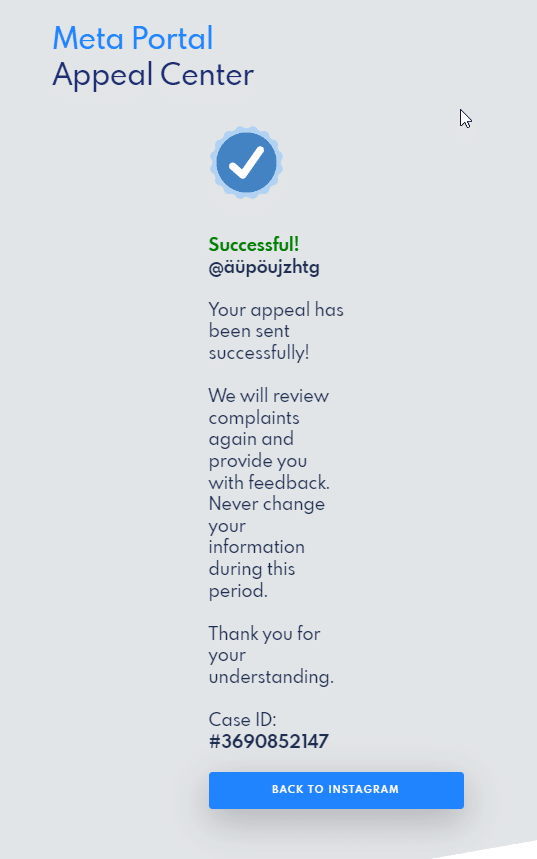Each of us has experienced it: unexpected emails or Instagram messages that initially worry us. But at a time when online security is becoming increasingly important, we should take a closer look and question these messages. One of these cases is currently circulating – scammers posing as Instagram.

A deceptive beginning
Imagine opening your messages and seeing an email from Instagram. The subject? An alleged copyright infringement. Your heart beats faster. The message claims that there are complaints regarding your account and if you do not respond, your account may be deleted within 48 hours. Of course, there is also a solution: a form that you have to fill out.
The devil is in the details
But this is where the disagreements begin. If you follow the link to the form in question, you end up on a website that looks similar to Instagram, but upon closer inspection has some oddities. The design, URL and other details do not match the real Instagram. And then things get even more dubious: You are asked to enter personal information such as email address, password, phone number and even a code that you receive via SMS.

The real target of the scammers
What's behind it? It's an attempt to take over your Instagram account. With the requested data, the fraudsters have everything they need to gain access to your account. And if you use the same password for other services, they could also be at risk.


How do I protect myself from fake Instagram messages?
It is important never to react hastily to such Instagram messages. Always check the source before clicking on links or revealing personal information. A simple rule: if you have any doubts, contact the service in question - in this case Instagram - directly via the official website or app. Also, change your passwords regularly and use different combinations for different services.
Conclusion
In a world where digital communication is ubiquitous, we must remain constantly vigilant. Fraudsters are becoming increasingly sophisticated and exploiting our fears and insecurities. By staying informed and always taking a critical look at unexpected news, we can protect ourselves and our data.
Note: On November 14, 2023, we will be holding an online workshop on the topic “How YOU can recognize fake news”. Given the current debate about digital media authenticity, this is a valuable opportunity to exchange ideas with experts and educate yourself. To participate, please register here.
You might also be interested in:
Meta plans ad-free Instagram and Facebook subscription for Europe
Meta uses your public Instagram and Facebook posts for AI training: What does this mean for your privacy?
Meta starts with ad-free subscriptions starting at 9.99 euros in November
Notes:
1) This content reflects the current state of affairs at the time of publication. The reproduction of individual images, screenshots, embeds or video sequences serves to discuss the topic. 2) Individual contributions were created through the use of machine assistance and were carefully checked by the Mimikama editorial team before publication. ( Reason )

